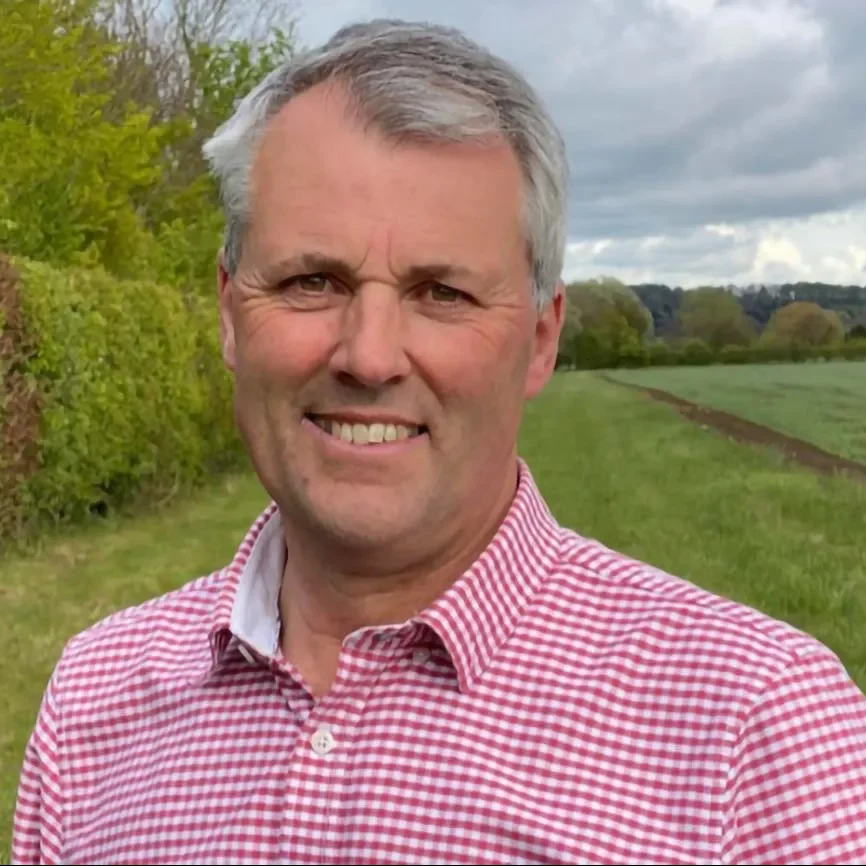Farmers’ Demands of an Incoming Government
19 June 2024 | 10.00am

Asks of an Incoming Government
With a general election two weeks after the Lincolnshire Show, it was a good time to ask the UK’s farmers what they need and what they want from the next government. We discussed the impacts of geopolitical events, economic turbulence and climate change on farm businesses and what can be done to support the food system and ensure a food secure future.
This interactive debate encouraged audience engagement in discussions around how government, and industry, academia and government together, can create a more supportive environment for farm businesses. This session was hosted in partnership with speakers from the NFU, Lincoln Institute of Agri-Food Technology (LIAT), Savills and MHA.
After the Show we delivered an open letter to Westminster – to the leaders and Efra spokespeople of the main parties, new Cabinet, new Defra ministers and new Efra Committee to let them know what farming needs to safeguard its future.
Read the open letter to government here!
Speakers at the Lincolnshire Show

Tom Bradshaw
NFU President

Louise Manning
Lincoln Institute of Agri-Food Technology

Kelly Hewson Fisher
Savills and Lincolnshire Farming Conference

Andrew Ward MBE
NFU Lincolnshire and Roy Ward Farms
Read the Talk Summary
The Future of British Farming: Challenges and Solutions for a Thriving Agriculture Sector
British agriculture is at a pivotal moment, navigating complex challenges stemming from global crises, environmental imperatives, and economic pressures. Yet, the resilience and ingenuity of British farmers offer a path to overcoming these hurdles and building a sustainable future. As stewards of food security and environmental custodianship, the role of farmers is indispensable to society and economy. At the Lincolnshire Show, just a couple of weeks before the General Election, we explored the challenges British farmers face and how the sector can overcome them, with a call for decisive government action to support the agrifood industry.
Food Security: A Critical National Concern
The fragility of global food systems has been exposed by the COVID-19 pandemic, Brexit, the war in Ukraine and a series of extreme and unseasonal weather events. Disruptions in supply chains have driven home the importance of food security as a cornerstone of national stability. Both farmers and government agree that “food security is national security,” with farmers urging policymakers to adopt measures which reduce dependence on imports while supporting domestic production.
Andrew Ward, a farmer in Lincolnshire, highlights the inequity of current import regulations and the unlevel playing field which British producers and their counterparts around the globe occupy. Foreign produce often fails to meet the same high standards required of British products, creating unfair competition. Addressing these double standards through robust trade policies would strengthen the agricultural sector and safeguard the nation’s food supply.
Navigating Policy Cycles: A Long-Term Approach
Agriculture operates on timelines that far exceed the typical political cycle, creating uncertainty for farmers making multi-year investments. Crop rotations can span seven to ten years, yet policies shift every five years or less, leading to fragmented support and the inability of farm businesses to plan investments with confidence.
Farmers call for enduring policies, particularly in infrastructure investment, such as land drainage and slurry storage. These investments can secure long-term food production and environmental resilience for the UK. However, the transition from the EU’s Common Agricultural Policy to domestic schemes like Environmental Land Management (ELM) has added complexity, often prioritizing land for environmental goals over food production.
“We can’t go green if we’re in the red,” one farmer remarked about the loss of food subsidies, underscoring the need for balanced policies that support both sustainability and profitability.
Water Management: A Pressing Issue
The increasing frequency of extreme weather events has made water management a critical priority. Farmers advocate for greater investment in the UK’s water infrastructure, with a focus on maintaining and upgrading existing systems. Many argue that the Environment Agency should prioritize maintenance over costly new projects, ensuring that current infrastructure operates efficiently.
Efforts to restore peatlands and raise water tables, while important for environmental reasons, must also account for agricultural viability. Innovative solutions, such as cultivating crops suited to wetland conditions, could offer a middle ground between ecological restoration and food production.
Land Use: Competing Demands
British farmers face mounting pressure to balance food production with other land-use demands, including housing development, clean energy production and environmental conservation. The government’s goal of protecting 30% of land by 2030 and increasing tree planting could require millions of additional acres, intensifying the competition for finite resources and diverting good land away from food production.
Farmers are exploring ways to optimize land use by “stacking” opportunities—integrating food production with biodiversity initiatives and renewable energy projects. However, achieving this balance requires clear policy direction and financial incentives to ensure agriculture remains central to national priorities.
The new government is in a position to stimulate the flow of private investment into agriculture. It can address structural inequities within the food industry, develop the markets for green goods and services and review tax incentives to innovate.
The Economics of Farming: Profitability and Investment
Profitability remains a linchpin of agricultural sustainability. Without economic viability, farmers cannot reinvest in technology, sustainable practices or infrastructure. While public funds increasingly focus on environmental payments, market mechanisms must play a larger role in supporting farm incomes.
One proposed solution is a government-backed loan scheme, similar to COVID-19 recovery loans, to fund capital-intensive projects such as renewable energy integration and precision farming technologies. Such initiatives would drive food security, economic growth, and environmental progress simultaneously.
Fairness in the agrifood supply chain continues to be critical to farm cashflows and profitability. Redistribution of profit share to improve on the 0.05% returns farming businesses typically earn, supplemented by shorter payment terms and less restrictive standards to reduce wastage would encourage farmers to invest in food production.
Energy and Food Production: Striking a Balance
Renewable energy projects, including solar farms, offer new revenue streams for farm businesses but also reduce the land available for food production. This tension highlights systemic issues in agricultural profitability, where hosting energy projects is often more lucrative than growing crops.
Farmers also caution against offshoring the UK’s environmental footprint. Importing food from countries with lower environmental standards undermines domestic efforts to achieve sustainability. Policies and trade deals that prioritize sustainable British production over environmentally – and sometimes socially – harmful imports are essential.
The UK has some of the highest food production standards in the world. While desirable, they can make producing food more expensive and cheap imports will take market share if trading partners are not held to an equivalent standard.
Innovation in Farming: A Catalyst for Change
British agriculture has a long tradition of innovation. Advances in gene editing, robotics, and precision agriculture are transforming the sector. They are enhancing productivity while reducing environmental impacts. In Lincolnshire, initiatives such as autonomous harvesting systems and GPS-guided machinery demonstrate the potential of cutting-edge technology to revolutionize farming.
Expanding access to these innovations requires sustained public and private investment in research, productivity grants and a supportive tax regime. By fostering an environment conducive to technological adoption, the UK can cement its position as a leader in sustainable agriculture.
Regenerative Agriculture: Balancing Sustainability and Profitability
Innovation is not only about new technology and scientific advances. Regenerative agriculture is gaining momentum as farmers adopt practices that improve soil health, sequester carbon, and reduce reliance on synthetic inputs. However, defining these practices and quantifying their benefits remain challenges.
Global standards for carbon measurement are needed to validate the environmental impact of regenerative methods. Financial incentives, such as carbon credits and sustainability premiums, could encourage wider adoption. By aligning ecological and economic goals, British farmers can lead the transition to a greener agricultural model.
A common set of internationally recognised environmental metrics is also needed to measure, manage and profit from environmentally positive practices. Contracts within the food value chain are evolving to reflect the environmental concerns of consumers and regulatory compliance requirements of the large corporates. Farmers need to be compensated for their environmental efforts and share in the added value derived from sustainable products.
Education and Skills: Attracting the Next Generation
The future of British farming depends on a skilled and motivated workforce. COVID-19 and Brexit put an end to the flow of seasonal migrant labour on which British agriculture relied for many years. There is scant political will to restore an ease of movement for foreign agricultural workers due to public opinion favouring British residents for these jobs. Yet, agriculture struggles to attract young talent, partly due to outdated perceptions of farming as low-tech and low paying.
Educational initiatives, from school programs to university research projects, can inspire the next generation. Promoting agriculture as a dynamic career field – where technology meets environmental stewardship – could reshape public perceptions and address the industry’s skills gap.
Chronic labour shortages have contributed to the contraction in food production. Farmers have been reducing production levels to meet the size of the workforce available to harvest crops and process livestock. This alarming trend towards greater food insecurity can only be resolved with a skilled and enthusiastic modern farm workforce.
A Call to Action: Policy Reform and Public Support
For British farming to thrive, decisive action is needed on multiple fronts:
- Policy Stability: long-term, cross-party policies that support both food production and environmental goals are essential.
- Fair Trade: import standards must align with domestic regulations to ensure a level playing field for British farmers.
- Infrastructure Investment: funding for water management, renewable energy integration, and sustainable farming practices is crucial.
- Consumer Awareness: educating the public about the benefits of buying British – lower carbon footprints and higher food safety standards – can drive demand for local produce.
Conclusion: Securing the Future of British Agriculture
British farming is at a turning point, with the potential to lead the world in sustainable food production. By valuing food as a public good, investing in innovation, and fostering fair trade, the UK can secure its agricultural future. This requires a unified effort – farmers, policymakers, academics and the public must work together to sustain the land, support rural communities, and safeguard the nation’s food supply for generations to come.
The time to act is now. Policymakers must rise to the challenge, ensuring that British agriculture not only survives but thrives in the face of adversity. Only then can the sector fulfil its promise as a cornerstone of the nation’s economic and environmental resilience.

